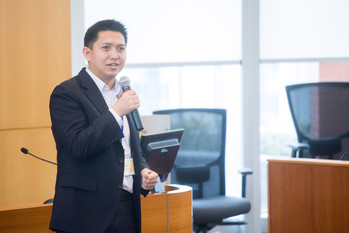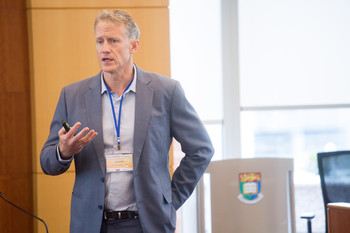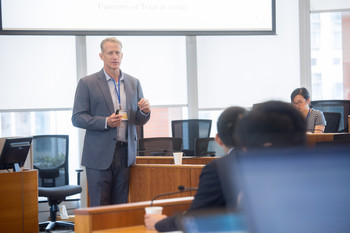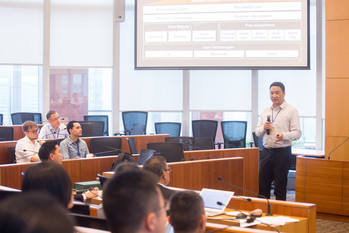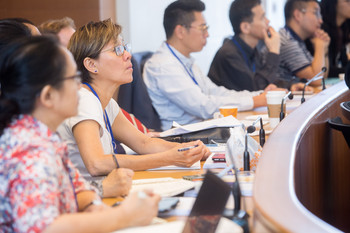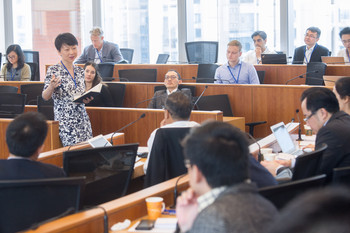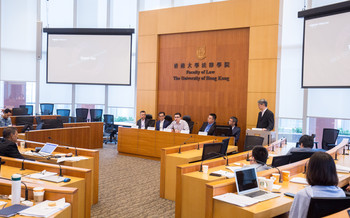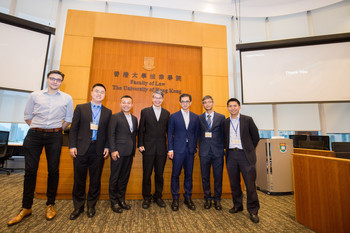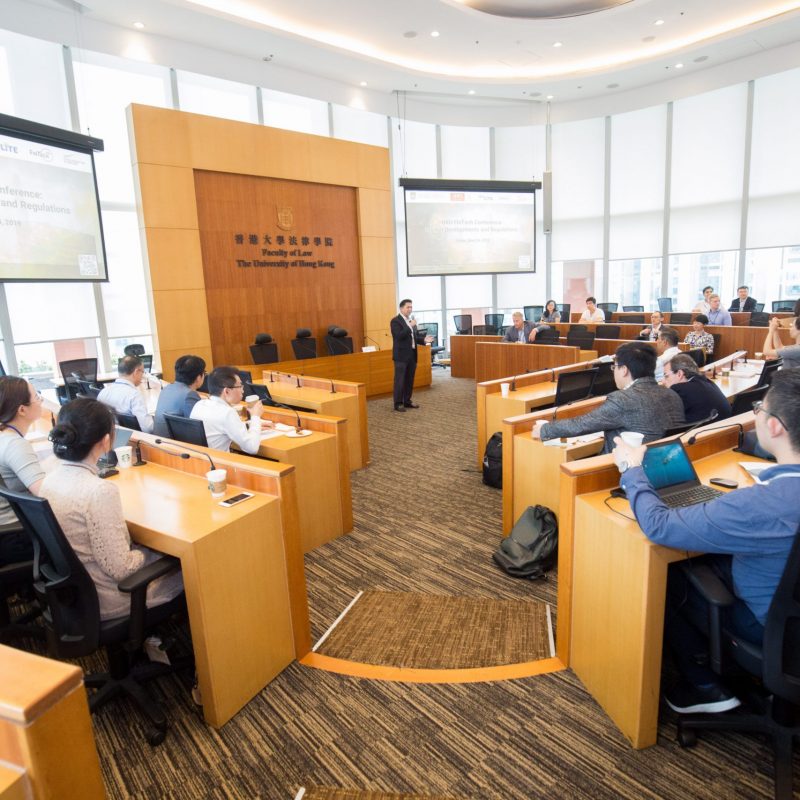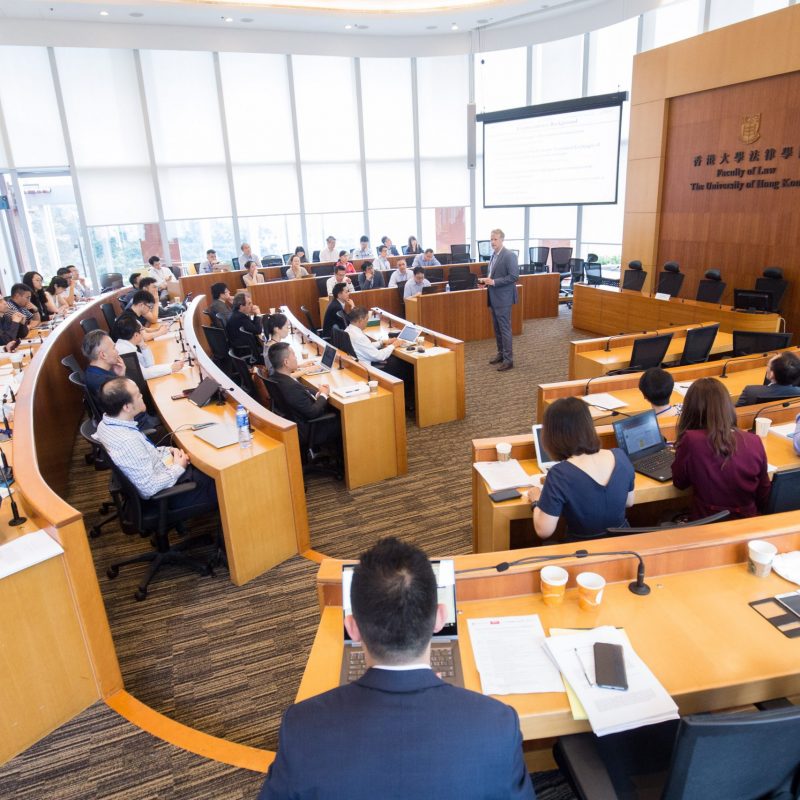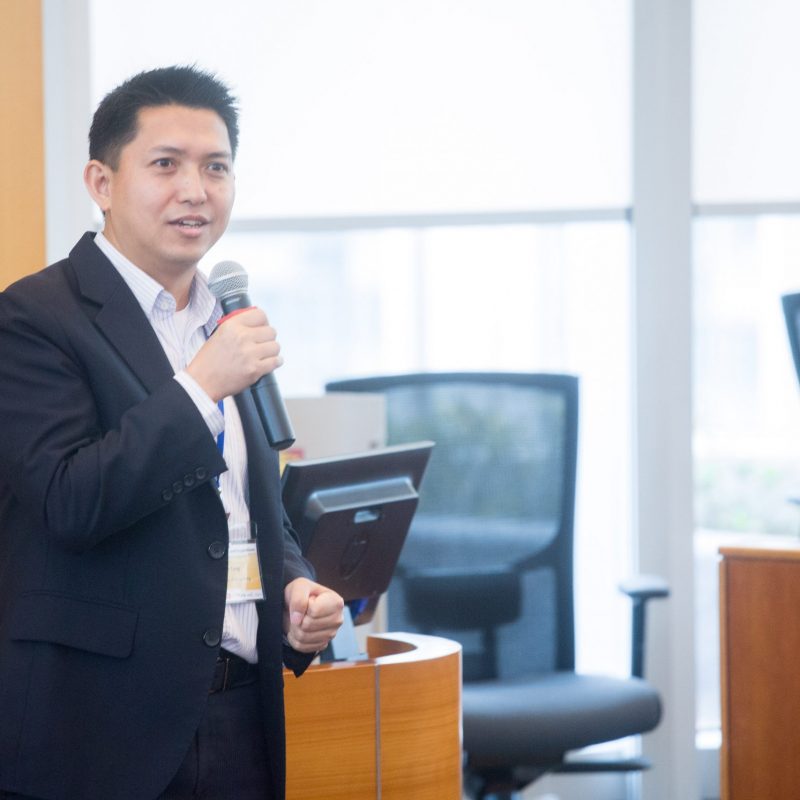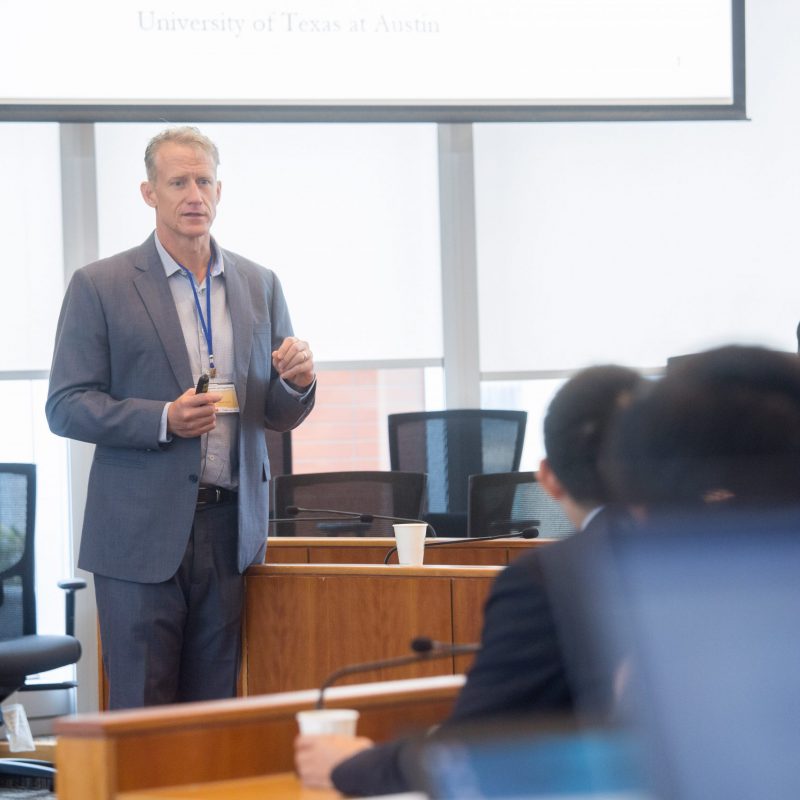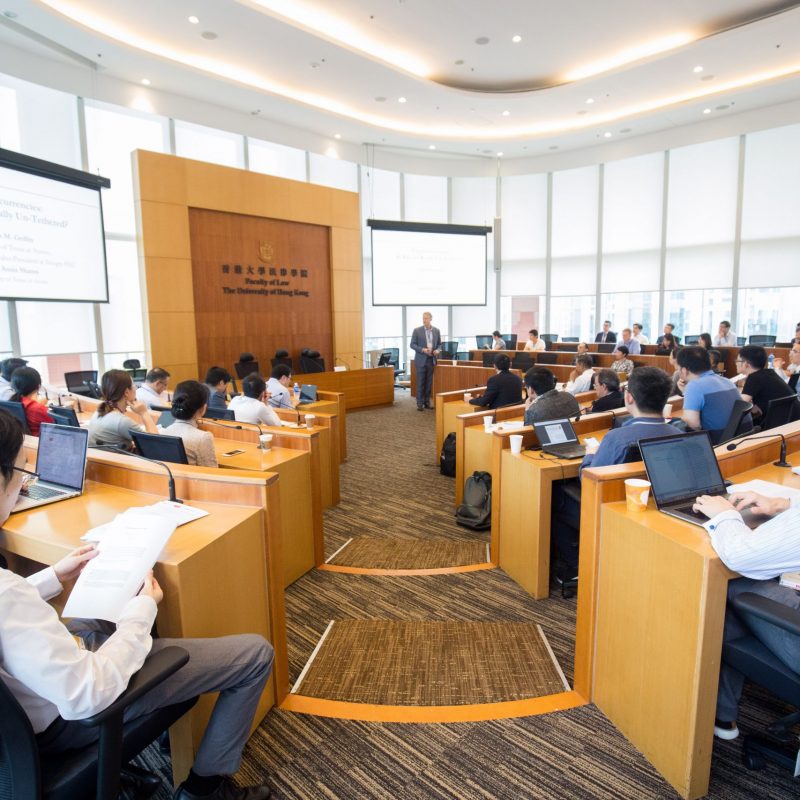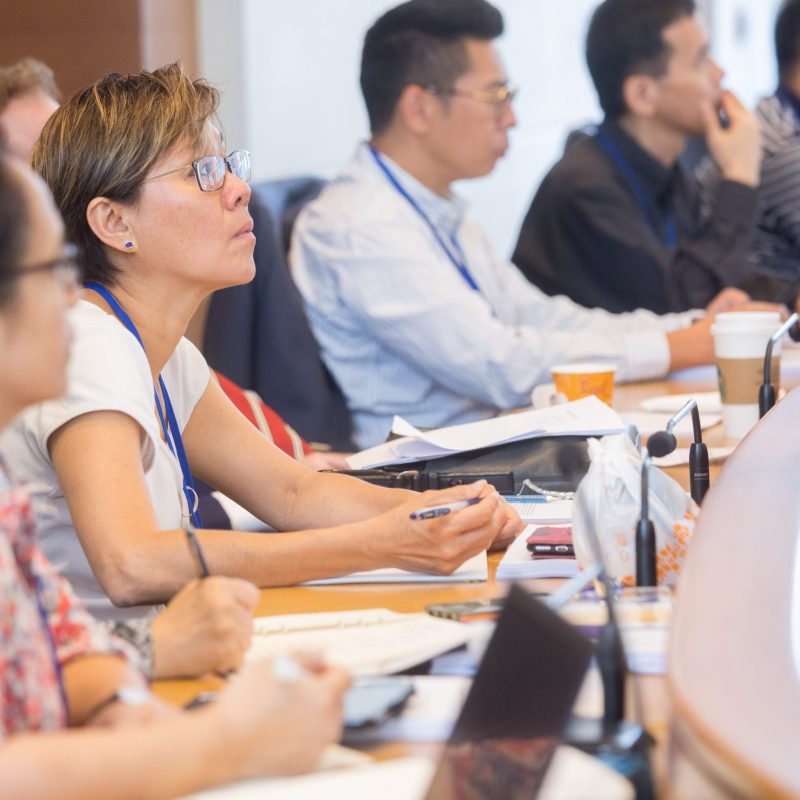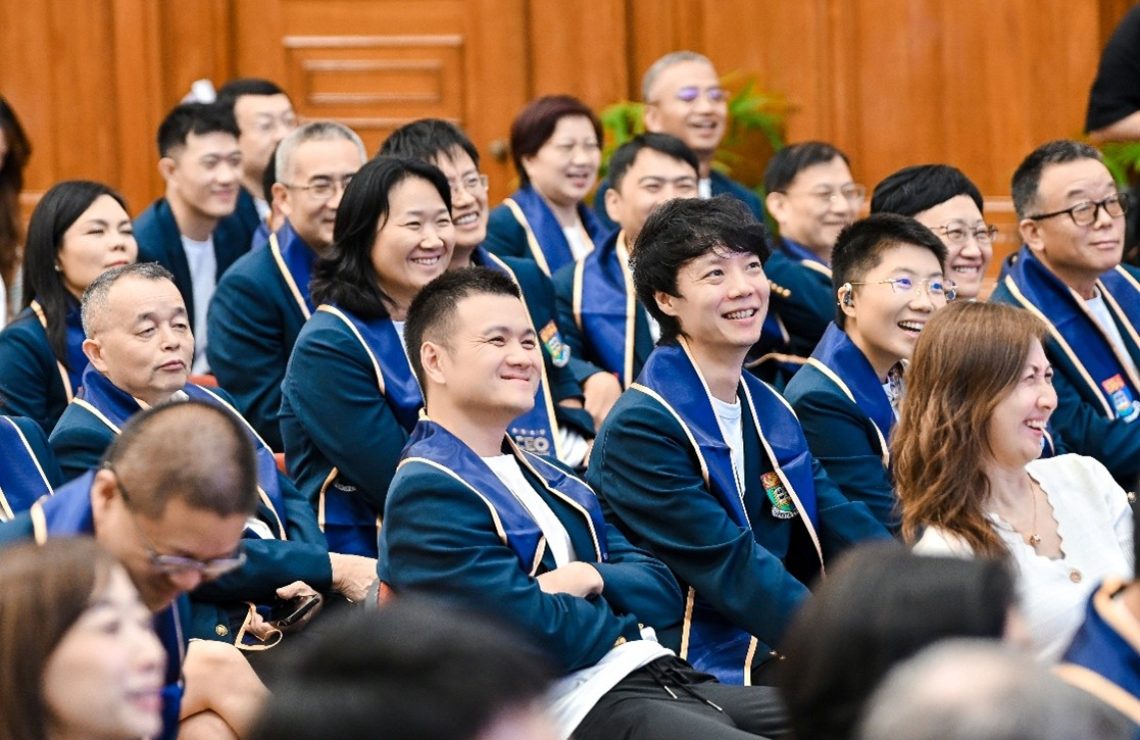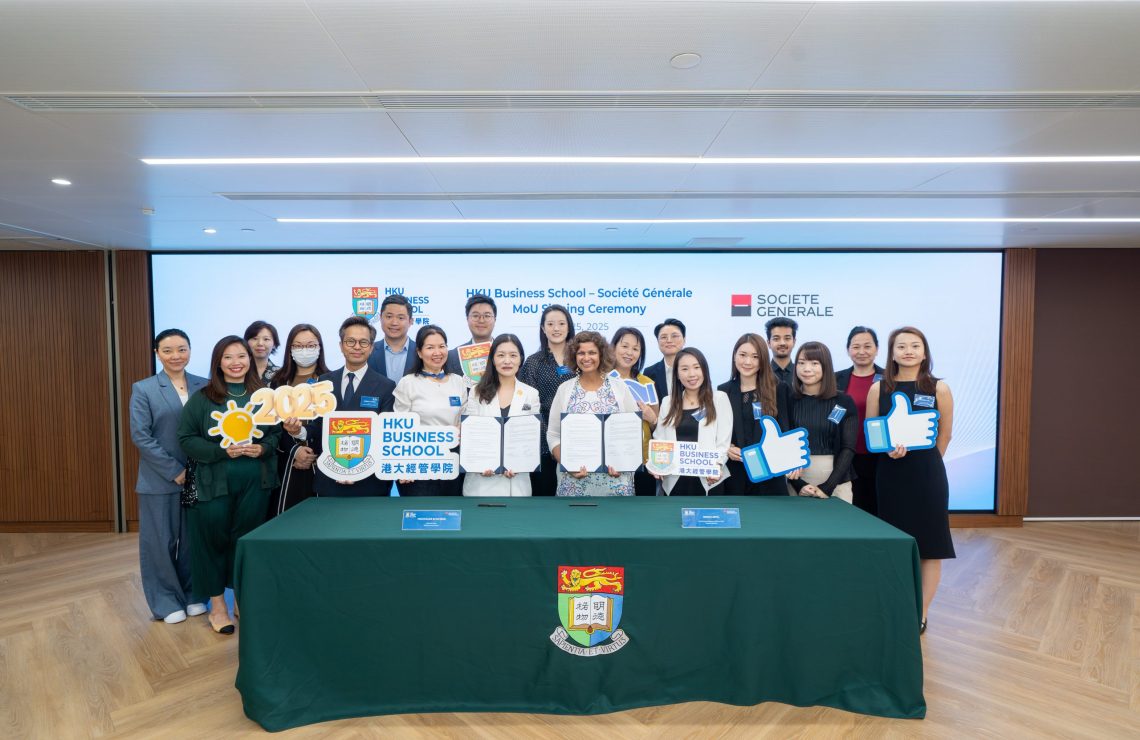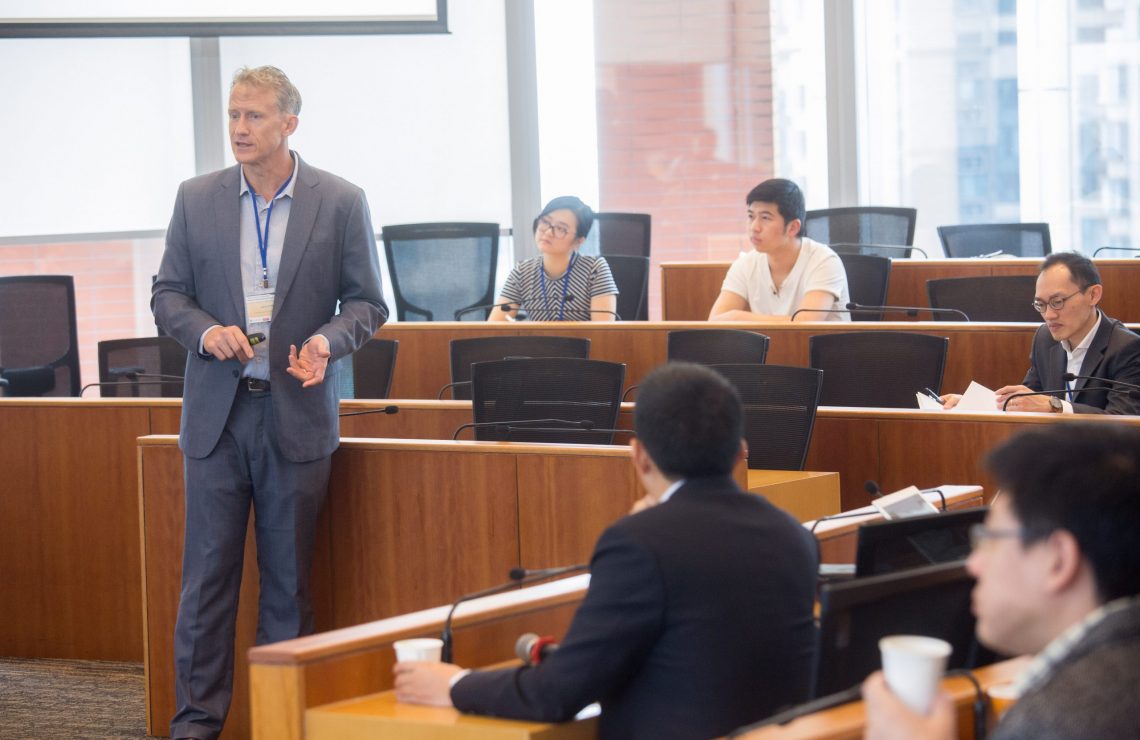
Conference on FinTech: Market Developments and Regulations
Jointly organised by HKU Faculty of Business and Economics, Asian Institute of International Financial Law, Faculty of Law, and HKU Law Innovation Technology and Entrepreneurship Programme, the conference “HKU FinTech Conference: Market Developments and Regulations” was successfully held on 24 May 2019 in the campus. Over 80 participants from academia and industry attended the event.
Professor Dragon Tang, Area Head in Finance, welcomed all the participants to the conference and introduced the keynote speaker Professor John Griffin. Titled “Is Bitcoin Really Un-Tethered?”, Professor Griffin talked about how Tether is used to affect Bitcoin prices. Both academics and practitioners had a very engaging session with Professor Griffin, raising many questions and feedback on the Bitcoin market and its regulations and standards.
Five papers were then presented, after the keynote session, by scholars from all over the world. They are Professor Xiaoyan Zhang from Tsinghua University, Professor Lin Peng from Baruch College of City University of New York, Professor Roger Loh from Singapore Management University, Professor Yi Huang from Graduate Institute Geneva, and Professor Alex Yang from London Business School and The University of Hong Kong. These speakers presented a wide range of topics on the area of FinTech, such as peer-to-peer lending, real effects of FinTech, and framework of cryptocurrencies. Their papers were commented by discussants – Haitian Lu from The Hong Kong Polytechnic University, Vikas Agarwal from Georgia State University, Johan Sulaeman from National University of Singapore, Jinfan Zhang from The Chinese University of Hong Kong, Shenzhen, and Bin Wei from Federal Reserve Bank of Atlanta, as well as the audience. The two sessions were chaired by Professor Tse-Chun Lin from HKU Faculty of Business and Economics, and Dr. Ilhyock Shim, Head of Economics and Financial Markets for Asia and the Pacific of Bank for International Settlements.
Mr. Eugene Huang, Chief Operating Officer and Chief Technology Officer of OneConnect (the main FinTech platform of Ping An Group), then gave a highly impressive speech on Ping An’s FinTech system in the plenary session. Mr. Huang has shared how Ping An integrates all aspects of FinTech and how people’s daily life is impacted in a positive way. He also explained how Ping An is entering other markets replicating the success in China.
The conference was ended with a panel discussion moderated by Mr. Brian Tang from Asia Capital Market Institute. Five panelists with different FinTech practices talked about their ongoing work and projects, and debated on the regulatory framework on FinTech.
Overall, the conference has successfully addressed timely and important issues on FinTech related areas, and facilitated a fruitful knowledge exchange between academics and practitioners. For more information please visit the conference website https://www.hkubs.hku.hk/conference/ftc-mdr/index.html.
